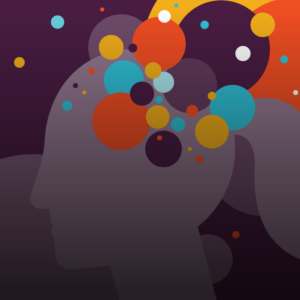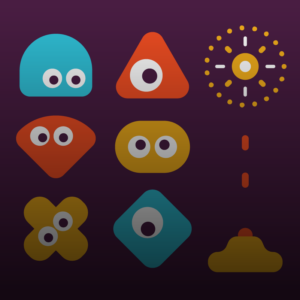It has been widely established that AI and Automation will transform the future workplace and our economy. However, it will not only enhance a businesses technological processes but the people within it too.
Machines and algorithms are expected to create 133 million new roles but will replace 75 million positions by 2022, according to the World Economic Forum. But the question is, what type of roles is it creating and displacing? And what skills will these roles need?
Human connection can’t be automated
A few weeks ago CIPD released the ‘People and machines: from hype to reality’ report. It revealed that professional and higher technical staff are one of the most likely fields to be affected by AI and automation at 28%. In contrast, sales and service occupations are the least likely to be impacted at 5%. Although machines are more proficient in processing and understanding large amounts of data, they can’t replace human connection. For example, in sales positions, it takes that human connection to build a rapport with a customer and problem-solve any complaints or issues they are having. The ability to communicate, problem-solve, manage your time and stay motivated – widely known as soft skills.
Interestingly this shift is also reflected in the job market. According to Harvard University, the need for STEM-related roles greatly increased between 1989 and 2000 on the global jobs market but hasn’t significantly grown since. But positions in the creative industries, a sector which is rich in soft skills, increased in demand by 20% between 2011 and 2016. These statistics reveal a future where the need for soft skills in the workforce will become increasingly important.
What are the most valued soft skills for the future?
At the beginning of the year, LinkedIn uncovered the skills companies will need most in 2019, and at the top of that list was creativity. We are about the enter the fourth industrial revolution, companies will need creatives to lead them into the future to create new ideas and methods of working alongside new technology such as AI.
The World Economic Forum also found that 90% of top performers at work also have high emotional intelligence. According to Psychologist Daniel Goleman, emotional intelligence is defined by five core components:
- Self-awareness – an understanding of your own emotions and how they could affect others.
- Self-regulation – this is the ability to think before you react to a situation and the degree you are able to control your moods and impulses.
- Internal motivation – rather than pursuing a goal for a reward, you are motivated to achieve for personal reasons, for instance, personal development.
- Empathy – you are able to recognise and understand other people’s motivations.
- Social skills – you can build a network and manage relationships.
This skill is essential for successfully managing a team, communicating with colleagues or customers. The CIPD report at the beginning of this article showed that the least affected roles will be people focused. This ability will be key for employees who want to successfully conduct themselves in the workplace.
How can businesses measure emotional intelligence and creativity in their applicants?
Cognisess Pro can measure a variety of soft skills through our scientifically backed assessments, including emotional intelligence and creativity. Allowing companies to hire a future-ready workforce.
We achieve this using the Cognisess’ Baseline Assessments along with our Team Fit tool. Creativity is measured by:
- A person’s openness to experience. If an applicant isn’t willing to try new things, they are unlikely to think outside the box
- Conscientiousness. For a person to be highly creative this needs to be an average score. An individual needs to commit to a plan, but not so rigidly that they don’t attempt a different method that could work better.
- Risk taking. This also needs to be an average or just above average score. They need to be confident enough to take a calculated risk in order to pursue an innovative idea, but simultaneously not constantly take risks.
As a result of this, companies are able to create teams which have a strong representation in terms of both creative skills and aptitudes – but also ensuring the team composition has a high level of Psychological Safety. Psychological Safety is directly related to someone’s emotional intelligence and can be identified as a part of our Team Fit tool. Our expert analytics team have identified that team members who have higher emotional intelligence tend to also have a higher level of Psychological Safety. This means they feel more comfortable speaking their mind in potentially difficult or stressful situations. When considering this in terms of innovation and creativity, it becomes a vital skill for a person to have. As there is nothing gained for the company from someone who is extremely creative at work, yet lacks the confidence to share their ideas with the rest of their team.
How to stay relevant in a fast-changing world
From work carried out with a variety of companies over the past 2 years, Cognisess has identified that understanding the creative composition of a team is a very important factor for companies looking to be innovative.
Many current thinking and methods will quickly become outdated and irrelevant to a fast-changing and increasingly automated world. Creativity and problem-solving are hugely important for keeping the focus and energy of an organisation moving forward helping to innovate their processes and systems through the coming transformational years Without this ability to be more fluidly creative and adaptable, organisations will be held back or simply may become redundant in the market. Cognisess has recognised that being able to accurately identify and recruit the talent who can bring creativity and innovation, ill enable Talent Managers within HR to make better decisions about the people and teams who should be empowered as the trendsetters versus those are more likely to conform to or defend the outdated modes of thinking.
Creativity – in the right team environment – is becoming essential to future proof organisations. It elevates the organisation’s strength in producing ideas and innovation through the free trade of ideas and accelerate the uptake of innovation throughout the organisation and help to cultivate a positive culture of freely shared ideas and possibilities. Companies can then reap the rewards of a future-oriented culture that is constantly and confidently implementing new ways to improve the contribution and progression of the business for employees, management, customers and shareholders alike.
Get future ready?
Become future ready and recruit the soft skills every company will need in the age of automation. If you would like to learn more about assessing creativity, emotional intelligence or our Team Fit tool, book a demo with our expert team.


